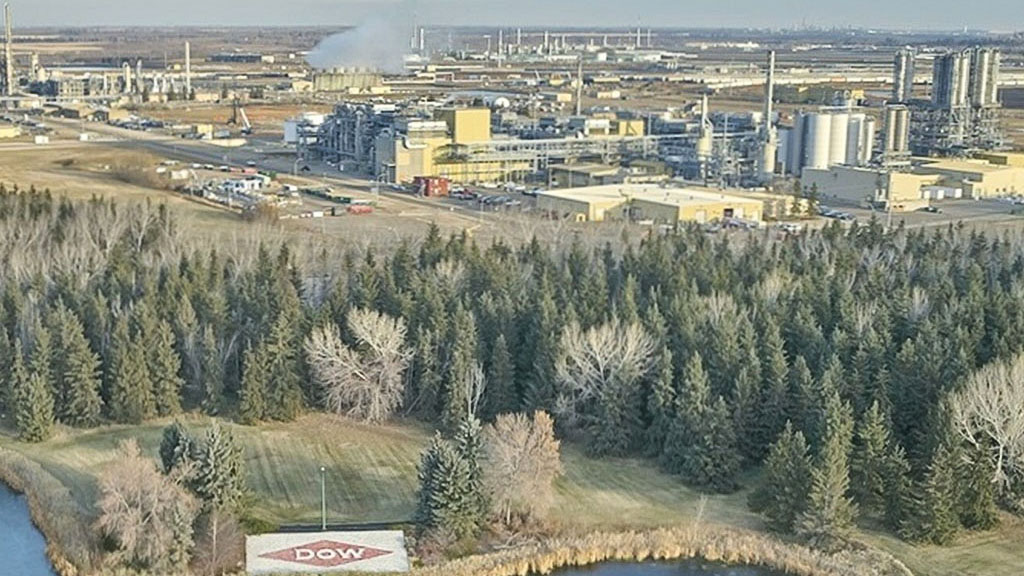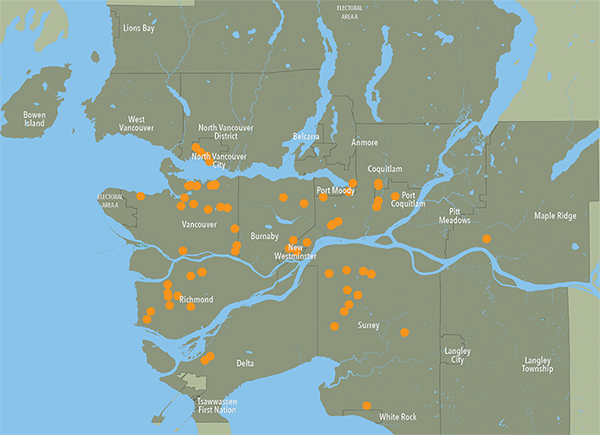Tariffs Cause $9 Billion Dow Project Delay In Alberta

Table of Contents
The Role of Tariffs in the Dow Project Delay
The primary culprit behind the $9 billion delay of the Dow project in Alberta is the substantial increase in project costs driven by tariffs. Specifically, steel and aluminum tariffs imposed on imported materials have significantly impacted the project's budget. The tariff impact on project cost escalation is undeniable, highlighting the vulnerability of large-scale infrastructure projects to fluctuations in global trade policy. The increased cost of imported steel, a crucial component in construction, has had a major impact. This is further compounded by tariffs on aluminum, impacting various project components. The lack of readily available, tariff-free alternatives has exacerbated the situation, leaving the project with limited options to mitigate the increased costs. This unfortunate situation serves as a stark reminder of the interconnectedness of global trade and its profound effects on local economies and infrastructure development.
- Increased cost of imported steel: The reliance on imported steel for the project made it extremely vulnerable to the increased costs associated with steel tariffs.
- Tariffs on aluminum: Similarly, tariffs on aluminum resulted in higher costs for various structural and operational components.
- Limited tariff-free alternatives: The absence of readily available, competitively priced alternatives forced the project to absorb the increased costs associated with tariffs.
- Vulnerability to global trade policies: This case demonstrates how unpredictable changes in global trade policies can severely impact the financial viability of large-scale projects.
Economic Consequences for Alberta and Canada
The delay of the Dow project carries profound economic consequences for both Alberta and Canada. The immediate impact is the potential for significant job losses in the construction sector and related industries. This loss of employment translates into reduced consumer spending and a potential economic slowdown in the region. The negative impact on Alberta's GDP growth is substantial, and it’s expected to ripple across the province’s economy. Moreover, reduced investor confidence in Canadian infrastructure projects poses a long-term threat to economic stability and future development initiatives. The ripple effect extends beyond the immediate project, affecting businesses that supply goods and services, leading to a wider economic contraction.
- Job losses: Thousands of jobs in construction, manufacturing, and supporting industries are at risk due to the project delay.
- Alberta GDP impact: The project delay will significantly affect Alberta's Gross Domestic Product (GDP) growth for the foreseeable future.
- Decline in investment: The delay erodes investor confidence, potentially deterring future investments in large-scale infrastructure projects within Canada.
- Ripple effect on supply chains: Businesses supplying goods and services to the project will also suffer significant economic setbacks.
Government Response and Potential Solutions
The Canadian government faces the urgent task of mitigating the negative impacts of the Dow project delay. This requires a multifaceted approach, including targeted government intervention and proactive policy adjustments. Government initiatives to support affected workers, such as retraining programs and unemployment benefits, are crucial. Simultaneously, engaging in vigorous trade negotiations with international partners to reduce or eliminate tariffs is paramount. Exploration of alternative sourcing for construction materials, potentially from countries with more favorable trade agreements, is also vital. Further, the government might consider offering subsidies or tax breaks to incentivize investment in similar projects and stimulate economic activity.
- Worker support programs: Government intervention is essential to provide support and retraining for displaced workers.
- Trade negotiations: Active negotiation with trade partners is crucial to reduce or eliminate tariffs on essential construction materials.
- Alternative sourcing: Exploring alternative suppliers for construction materials can mitigate the impact of tariffs.
- Economic stimulus packages: Government subsidies and tax incentives could encourage investment and stimulate economic recovery.
Conclusion
The significant $9 billion delay in the Dow Chemical project in Alberta, directly linked to the impact of tariffs on project costs, presents substantial economic consequences for the province and the nation. This situation underscores the vulnerability of large-scale infrastructure projects to international trade policies and highlights the urgent need for a reassessment of current trade practices. The far-reaching consequences of tariffs on major projects like the Dow project demand immediate attention. Understanding the far-reaching consequences of tariffs is crucial for mitigating future risks and fostering a stable economic environment. Let's advocate for fairer trade policies to prevent further delays and economic setbacks caused by tariffs impacting crucial projects in Alberta and beyond. Addressing the issue of tariffs and their impact on major projects is crucial for the future economic health of Alberta and Canada.

Featured Posts
-
 Luigi Mangione Supporters Their Hopes And Expectations
Apr 28, 2025
Luigi Mangione Supporters Their Hopes And Expectations
Apr 28, 2025 -
 Death Of Virginia Giuffre Remembering The Epstein Accuser
Apr 28, 2025
Death Of Virginia Giuffre Remembering The Epstein Accuser
Apr 28, 2025 -
 Metro Vancouver Housing Market Slower Rent Growth But Costs Still Climbing
Apr 28, 2025
Metro Vancouver Housing Market Slower Rent Growth But Costs Still Climbing
Apr 28, 2025 -
 Market Volatility And Investor Behavior Understanding The Recent Trend
Apr 28, 2025
Market Volatility And Investor Behavior Understanding The Recent Trend
Apr 28, 2025 -
 Extreme V Mware Price Increase At And Ts Concerns Over Broadcoms Deal
Apr 28, 2025
Extreme V Mware Price Increase At And Ts Concerns Over Broadcoms Deal
Apr 28, 2025
Latest Posts
-
 Red Soxs Shifting Lineup Impact Of Outfielders Return And Casas Lowered Spot
Apr 28, 2025
Red Soxs Shifting Lineup Impact Of Outfielders Return And Casas Lowered Spot
Apr 28, 2025 -
 Analysis Red Sox Lineup Changes Following Outfielders Return And Casas Demotion
Apr 28, 2025
Analysis Red Sox Lineup Changes Following Outfielders Return And Casas Demotion
Apr 28, 2025 -
 Updated Red Sox Lineup Casas Position Change And Outfielders Reinstatement
Apr 28, 2025
Updated Red Sox Lineup Casas Position Change And Outfielders Reinstatement
Apr 28, 2025 -
 Red Sox Lineup Outfielder Returns Casas Moves Down In The Order
Apr 28, 2025
Red Sox Lineup Outfielder Returns Casas Moves Down In The Order
Apr 28, 2025 -
 Triston Casas Continued Slide Red Sox Lineup Adjustment And Outfielders Return
Apr 28, 2025
Triston Casas Continued Slide Red Sox Lineup Adjustment And Outfielders Return
Apr 28, 2025
